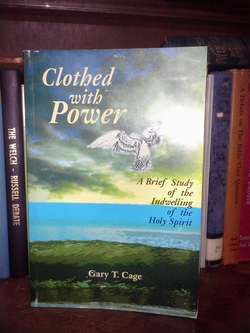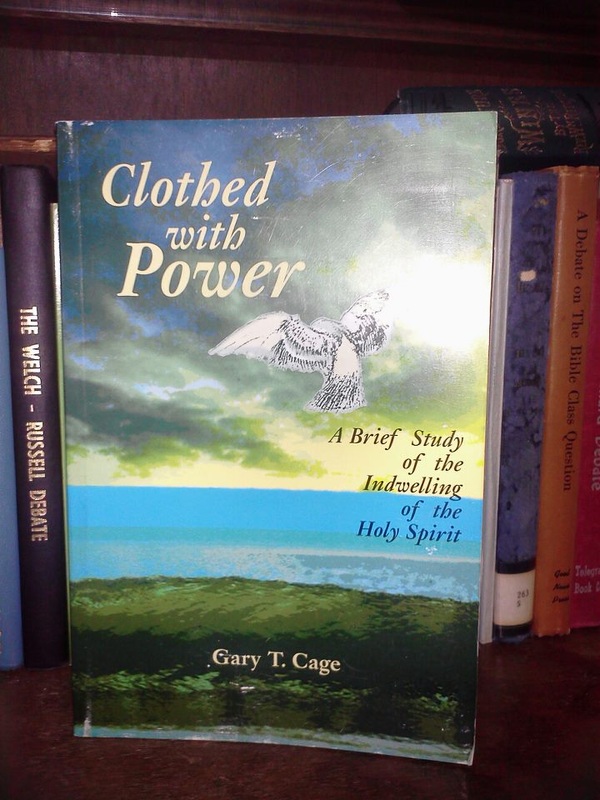
Reviewed by Nathan Battey
This work represents a condensed version of Cage’s original work ‘The Holy Spirit: A Sourcebook With Commentary.” When I placed an order with him last week for his Sourcebook, he mentioned he had written an abridged edition at the recommendation of his brethren. His brethren felt he had done an excellent work, but that few would utilize such a large work to it’s full potential and that he should thus consider writing an abridged version that addressed the heart of the issue.
There are always pros and cons to an abridged version of a book as there are with an unabridged version. This abridged version reads more smoothly and keeps a continuity of thought before the reader than does the larger work. Having read it I feel a clearer general picture is accomplished in a much shorter amount of reading. The author has chosen the more prominent portions of Scripture dealing with the Holy Spirit thus dealing with most parts the average reader has questions about.
This abridged work does not have as detailed a discussion on difficult passages, nor does it reference and deal with all the opposing views on a given passage. This is one area where the larger work is superior in my opinion. This version also does not contain all of the analytical tables and charts contained in the larger volume that I personally found quite helpful.
One of the ideas that emerges more clearly in this work is the author’s interpretation of Holy Spirit baptism. Though he is in agreement with our traditional view of Acts 2 and 10 being examples of Holy Spirit baptism, he does not believe Holy Spirit baptism was limited to those two instances. He believe the term “Holy Spirit baptism” is a generic term that can be used interchangeably with “the pouring of the spirit”, “the indwelling of the Spirit” etc. and that it simply refers to the giving of miraculous abilities. He believes that other than the two instances in Acts 2 and 10, (he also believe the occurrence in chpter 4 is possibly of the same nature) the giving of miraculous abilities came only through the laying on of the apostles hands (as we traditionally agree- with the possible exception to his position on the occurrence in chapter 4 ); he would simply say that those instances can also be referred to as Holy Spirit baptism. I am not sure that I agree with him on this position, though I do not feel it detracts from the overall nature of the book.
The author believes miracles have ended as per 1 Corinthians 13 (as do I) and that they lasted for roughly two generations (as do I). As a side point to this view, he reveals that he holds to the A.D. 70 theory and that the destruction of Jerusalem had to do with the ending of miracles. I do not agree with this position, but he does not go into a discussion of the A.D. 70 position, but simply states he believes it. I point this out only to give people a heads up that if they ever encounter any other works that he has written (of which I am not aware that there are any) to keep an eye out for any leanings toward the A.D. 70 doctrine.
General Recommendation:
There are pros and cons to both his abridged and unabridged works and thus I would recommend them both to the serious student and the abridged version (Clothed With Power) to the average student. I have personally enjoyed both thoroughly and strongly encourage people to read and consider them in light of Scripture. I would recommend reading the abridged version first, and the delving deeper with the unabridged version.


 RSS Feed
RSS Feed
